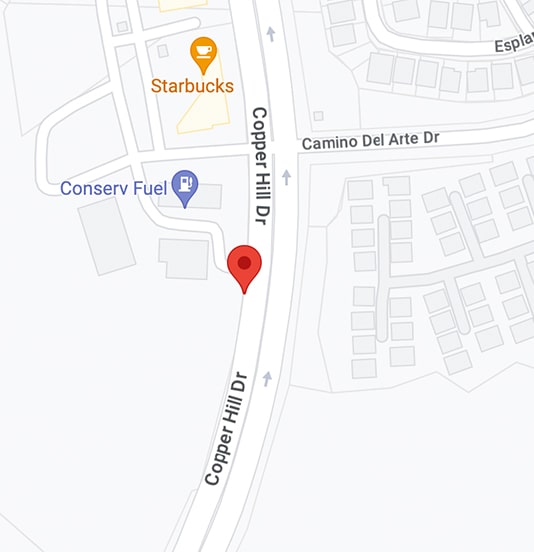Your teeth are naturally strong and beautiful. The enamel is the strongest element in your body. However, if you subject it to a strong force or impact, it can crack or break. For example, you can fracture or crack your teeth in a vehicle accident after a severe blow to your face or a severe fall. The fracture or crack can be minor or severe, depending on how much the tooth has been affected. Dentists treat dental fractures and cracks as emergencies. You need a dentist to examine the affected tooth immediately and recommend the best treatment to save the natural tooth.
Valencia Advanced Dentistry at Copperhill Smiles offers quality, reliable, and affordable emergency dental services. We understand the importance of saving your natural teeth. Thus, we are here to help with all your emergency dental care needs in Santa Clarita.
Causes of Tooth Fractures and Cracks
Your teeth are strong enough to withstand the forces of regular chewing and biting. However, they can break or crack if subjected to stronger forces. A fracture or crack on the tooth can result in tooth loss, a cavity, or infection. That is why dentists treat these issues as emergencies to save the tooth and avoid the need for more invasive and expensive treatments like root canal therapy, dental implants, or dental crowns. If you have been in an accident, suffered a blow, or fractured your tooth, you need immediate dental care before the problem escalates into a significant dental issue.
Your teeth can crack or fracture for many reasons. Here are some of the common causes of broken or fractured teeth today:
A Physical Injury
A severe trauma to your face can leave you with severe injuries, including a fractured or cracked tooth. You can suffer facial trauma after a fall, in a vehicle accident, during sports, or in a fight. While accidents are unavoidable, dentists recommend wearing a mouthguard when participating in your favorite sports to prevent injuries. You can also avoid physical altercations to save the teeth and other vital body organs.
If you have been in an accident and your tooth is cracked or injured, contact your dentist immediately. Sometimes, you cannot tell that one or more of your teeth have been fractured. Thus, if your teeth or gums are bleeding or you experience pain in the mouth, visit your dentist. They will examine your teeth for fractures and recommend the best treatment.
Biting or Chewing Hard Objects or Foods
Remember that even though your teeth are strong, they have a limit to the force they can withstand. Hard objects and foods are known to damage your teeth' enamel. If you habitually chew or bite hard objects, your teeth can develop small cracks that worsen over time. These tiny cracks are unnoticeable from the beginning until they become significant cavities or until the cracks extend to a tooth’s underlying structures.
Although teeth are meant for biting and chewing, caring for them includes not subjecting them to unnecessary and damaging forces. Thus, you could avoid chewing ice and candies and using your teeth to open bottles and cans to keep them in good condition.
Tooth Grinding
If you habitually grind your teeth, you could end up with broken or fractured teeth. Teeth grinding exerts unnecessary pressure on your teeth. If done excessively, it weakens the enamel, resulting in minor cracks that quickly become major fractures and cavities. Some people habitually grind their teeth when stressed or anxious. You should speak to your dentist about these habits to find a quick solution before damaging your teeth. For example, if you grind your teeth mostly when sleeping, your dentist can recommend wearing a mouthguard at night to stop the habit. Your dentist can also take you through jaw exercises and stress reduction techniques to help you quit the habit.
Sudden Temperature Changes in the Mouth
Sudden temperature changes in the mouth can cause your teeth to crack. For example, if you take something extremely hot and try to cool it off with something cold, you could damage your teeth. Your teeth expand and contract due to the various temperatures you introduce when you consume something. But you must be careful about introducing these temperatures to avoid damaging them.
Old Age
When you are young, your teeth are solid and beautiful. But as you age, they become weaker and less stunning. Like any other body part, your teeth wear and tear with age. They become more susceptible to cracks and fractures. This is because your body loses its ability to absorb minerals in old age. These minerals are necessary for strong teeth and bones.
Your mouth also loses its ability to produce sufficient saliva, remineralizing your teeth with magnesium and calcium. This makes your teeth weak and prone to damage. If subjected to trauma, your teeth will crack or fracture. Even a small force is enough to crack a weak tooth.
The Signs of a Fractured or Broken Tooth
While some broken or fractured teeth are visible, others are invisible. This does not mean the invisible ones are less severe and should be ignored until they are large enough to require treatment. Remember that all a tooth's breakages, cracks, and features are severe. Even minor cracks on your tooth can result in severe dental problems like tooth loss. You must watch out for signs of dental cracks or fractures so you can immediately visit your dentist for treatment. Some of the signs to watch out for include the following:
- Your gum can swell around a damaged tooth as a sign of an infection.
- You could experience a gradual toothache that comes and disappears after some time.
- The broken tooth can be sensitive when you drink or eat something hot, cold, or sweet.
- You could experience erratic toothaches when biting or chewing with the damaged tooth, especially when releasing the bite.
Note: You will not experience symptoms with all tooth fractures. Some are painless and can remain so for a long time. However, they should be addressed. Remember that cracks and fractures in a tooth are breeding grounds for harmful bacteria. If some of your foods and drinks enter these cracks, they will be challenging to remove with regular brushing and flossing. The stuck foods combine with harmful bacteria to produce a dangerous acid that causes cavities, a buildup that causes gum disease, and infections. That is why you should consult with your dentist once you notice a crack or any indication of one.
Some cracks start small and deepen over time. If you ignore a minor and painless fracture on your tooth, you could deal with a significant tooth infection after some time. Tooth infections are some of the leading causes of tooth loss. They also require more expensive and invasive treatments, like root canal therapy.
What To Do If You Suspect a Broken or Fractured Tooth
Contact an emergency dentist immediately after noticing a fracture or crack on your tooth or teeth. You should do the same if you see one or more symptoms of a damaged tooth. The dentist can save the tooth or administer treatment to prevent tooth loss and other dental-related problems.
If you have been in an accident and one of your teeth breaks, gather the broken pieces and put them somewhere clean. Then, visit a dentist with the fractured pieces immediately; an emergency dentist can fix them back on the tooth to restore its form and functionality.
If you have fractured your tooth and are bleeding, rinse the mouth with warm, salty water before seeking emergency dental care. Before you arrive at the dentist's office, you could use gauze to apply pressure to stop or minimize the bleeding.
If the tooth fracture or accident has caused your gum to swell, an ice pack can help relieve the pain and swelling before treatment. Carefully place the ice pack on the swollen side of your cheek for a few minutes. Repeat that in intervals until you receive dental care.
You can cover the damaged tooth with an alkaline solution, such as saliva. This will prevent harmful bacteria from causing an infection.
If you are in severe pain, take some over-the-counter pain medication. Avoid eating right after the accident. Your dentist will tell you when and what to eat after treating the fracture and managing your pain.
If a fractured tooth leaves a sharp edge, you can cover the edge with sugarless gum to protect your tongue from injuries. An emergency dentist will tend to it immediately after you arrive at their office.
You can administer first aid to yourself or have someone do it after injuring your tooth. However, remember that first aid is only needed before an emergency dentist examines and administers treatment. Do not use first-aid tips as actual treatment, and do not neglect to seek help after breaking or fracturing your tooth. Remember how expensive tooth replacement is. You do not want to lose a natural tooth to a fracture or crack that can quickly and cheaply be treated.
Treatment for Broken and Fractured Teeth
The field of dentistry has advanced so much, thanks to the advancing technology. Emergency dentists have many treatment options for broken and fractured teeth. Your dentist will discuss your options immediately after receiving you in their office. But first, they will examine the broken tooth and your other teeth to determine the extent of the damage. Your dentists will consider your gums and jawbone health to recommend the most appropriate treatment. They will also consider your treatment history and the medications you are on for safe and effective dental care.
Your dentist will recommend treatment according to the extent of your tooth’s fracture. They can treat minor cracks and fractures in the office on your first visit without needing a second appointment. But you could need a second or subsequent appointment for more severe dental fractures. For example, if the fracture extends to the tooth’s roots, the dentist will require multiple appointments to restore it.
Here are typical treatments for broken and fractured teeth:
Enamel Shaping
If you fell or were in an accident and your tooth chipped, it would leave a rough surface on the enamel. If the chipping is minor, you can easily ignore it. But it can injure your tongue and create discomfort. Dentists recommend enamel shaping to smooth the rough edges after chipping and restore the shape of your natural tooth.
Emergency dentists perform enamel shaping in a single appointment. Your dentist will smooth out the imperfections the chipping on your tooth creates. Since it is a non-invasive treatment, you do not need anesthesia. If you only need treatment for one tooth, enamel shaping will be done in a few minutes. Then, you can resume your normal activities.
Enamel shaping is quick, effective, and cost-effective. However, it is only used for minor chips on teeth. You will need a different treatment if the chipping is significant and extensive.
Dental Filling Or Bonding
Some dental cracks or fractures will require filling or bonding to restore the structure and functionality of the damaged tooth. Dental bonding is simple. Dentists perform it in their office on your initial visit. Dentists use composite resin for bonding. The material looks just like the natural teeth. Thus, no one will know of the treatment, even if it is done on your front teeth. The dentists perform bonding by filling the crack with the composite resin material. The material acts as a glue to piece together your fractured tooth. Once the application heals, the dentist will smooth it out to give it a natural look and feel.
Dental fillings work just like dental bonding, but dentists use different materials. If part of your tooth is missing, the dentist will use a filling to restore the tooth's shape and function. Once the filling is in place, the dentist will use a special light to harden it, and smooth it out for a perfect look and feel.
Dental bonding and fillings are noninvasive and affordable procedures. They are performed on minor dental fractures or cracks.
Installation of Dental Crowns
Dental crowns are impressions of natural teeth made from metal, ceramic, or porcelain materials. They are solid, long-lasting, and valuable in tooth restoration procedures. If you have lost a big part of your natural tooth in an accident, having a dental crown could be the best treatment. The crown will restore the affected tooth's shape, size, and functionality.
However, the dentist must create a crown in the lab and prepare your tooth for treatment. This means you cannot receive a crown the same day you seek treatment for the fractured tooth. The most your dentist can do during your first appointment is to examine the affected tooth, gums, and other teeth. They will also review your treatment history and current treatments to determine your suitability for crowns. Your dentist will then take an impression of the damaged tooth to create a crown that will fit the tooth exactly. They will then prepare the damaged tooth to receive the crown. Once the crown is ready, you will return to the dentist’s office for installation.
Dental crowns are generally expensive. Your dentist will recommend them for large dental fractures or cavities if you can afford them. But if the fracture extends to your tooth’s roots, your dentist can perform another treatment, like root canal therapy, before installing a dental crown.
Tooth Extraction
Severe dental fractures and cracks require tooth extraction. Dentists are not always able to save a damaged tooth. If the fracture is extensive or affects the tooth and gum, extraction could be the best treatment option. In this case, you must seek immediate dental care from an emergency dentist to perform the extraction. This will relieve pain, stop blood loss, and save your remaining natural teeth.
If you need urgent tooth extraction, your dentist will discuss it after examining your damaged tooth and gum. They will perform the extraction on the same day in the office. Tooth extraction is an invasive procedure. Thus, the dentist will first administer anesthesia to numb the extraction site and protect you from pain and discomfort.
The extraction site will take some time to heal. Your dentist can send you home with antibiotics to protect you from an infection. Your dentist will also discuss your preferred dental restorations to replace missing teeth. For example, they can recommend dental bridges, implants, or dentures. Your choice will depend on your preferences and budget.
Find a Skilled Emergency Dentist Near Me
Emergency dental services are crucial for a fractured or broken tooth. They save you from pain, discomfort, and further damage to the affected tooth. They also protect your gums and remaining teeth from infections and cavities.
We can help at Valencia Dentist if you fracture or break your tooth in Santa Clarita. Our emergency dentists have the necessary skills, experience, and tools to handle all dental emergencies. We will quickly examine the fracture to recommend the best treatment to save the tooth and the situation. Our emergency dental services are efficient, timely, and affordable. Call us at 661-775-7717 to learn more about our services and your dental needs.




